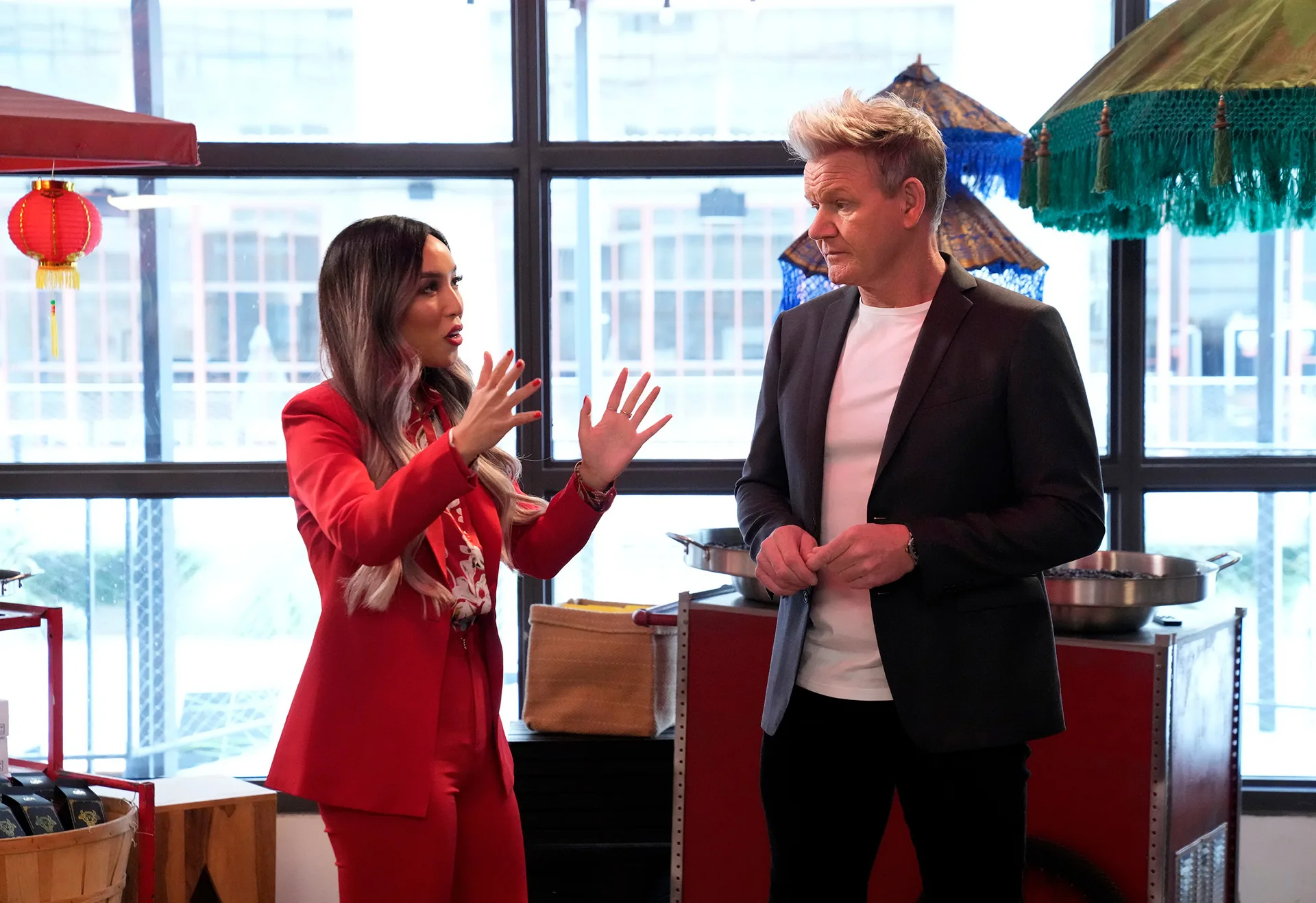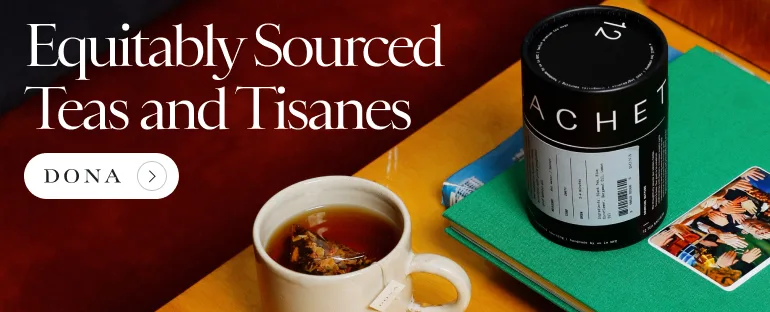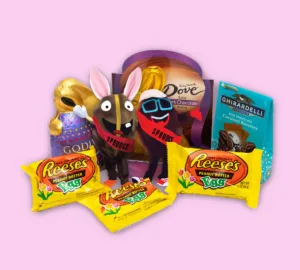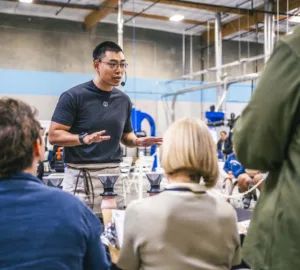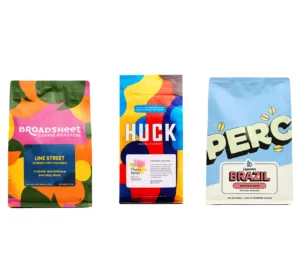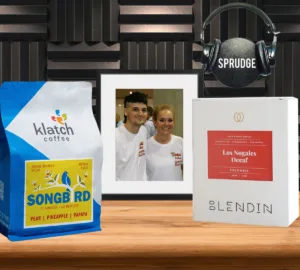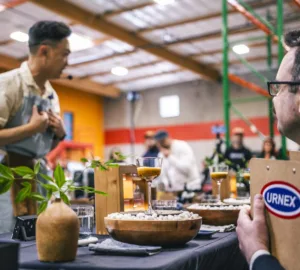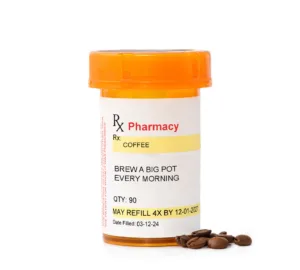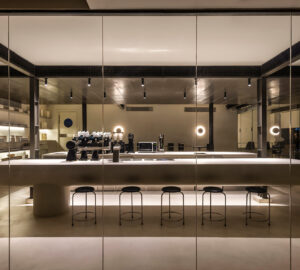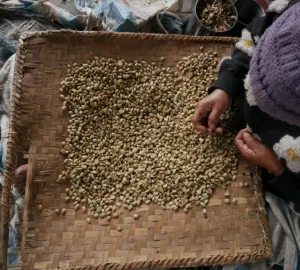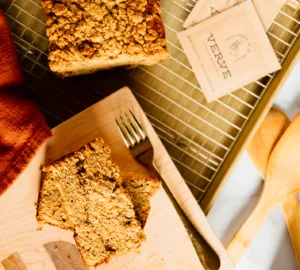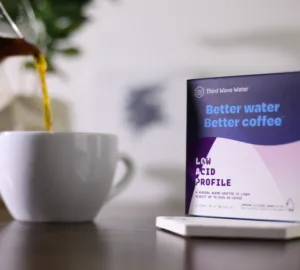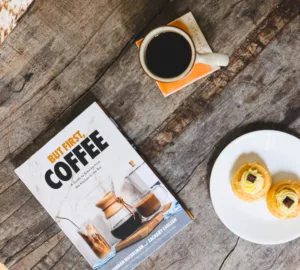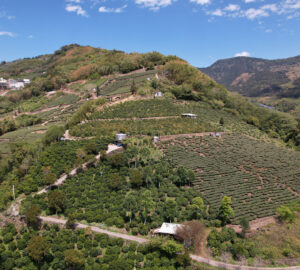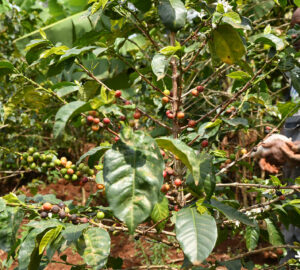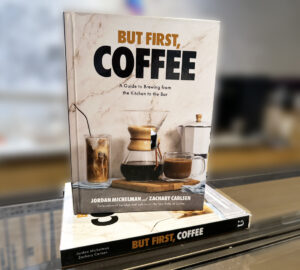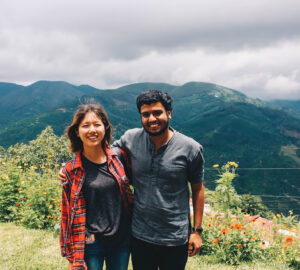It’s the day before the I Love You Brew pop-up cafe opens in Seattle, and the tension is high. Team lead Lan Ho tells her crew that they’re going to spend the next 15 minutes by themselves to figure out their station workflows.
Minutes later, front-of-house Caroline D’Amore picks up paper bags off the nearby counter and asks, “We’re not going to need this stuff here, guys, agreed?”
“Caroline, I just need you to figure this out with—”
“Hold on,” D’Amore interrupts Ho. “Isn’t that what we’re doing? Figuring it out right now?” Ho is visibly frustrated, as most would be in her situation. After all, they were opening the next day, and there was plenty of work left to do.
“It’s going good,” whispers D’Amore. “I mean, as good as it can be, working with people that are clearly not into being my teammate.” Why is she here if she doesn’t want to be?
It turns out that both Ho and D’Amore are contestants on Gordon Ramsay’s Food Stars, where food and drink entrepreneurs vie for the grand prize of a $250,000 investment from Ramsay. But to earn that prize, Ramsay puts them through a series of elimination competitions designed to test what he believes are important business skills.
“Unless they nail their workflow, the wheels will fall off when the morning rush begins,” Ramsay tells the camera. This episode’s challenge has two teams operating pop-up cafes. While each is provided a physical space with equipment installed, they have to handle the rest, which includes branding, developing a food and drink menu, and operating through the four-hour morning rush the next day.
Cut to opening day, and the audience gets a glimpse of what working in a cafe may be like: a jug of milk spilled minutes before doors opened, customers with duplicate names served the wrong orders, and banana bread burned in the oven. This challenge, like the ones before it, did not set the contestants up for success, but it was certainly entertaining (and cringe-worthy, on my end, as I watched someone Google how to steam milk). Ho’s team won the cafe pop-up challenge, and she ended up making it all the way to the finale.
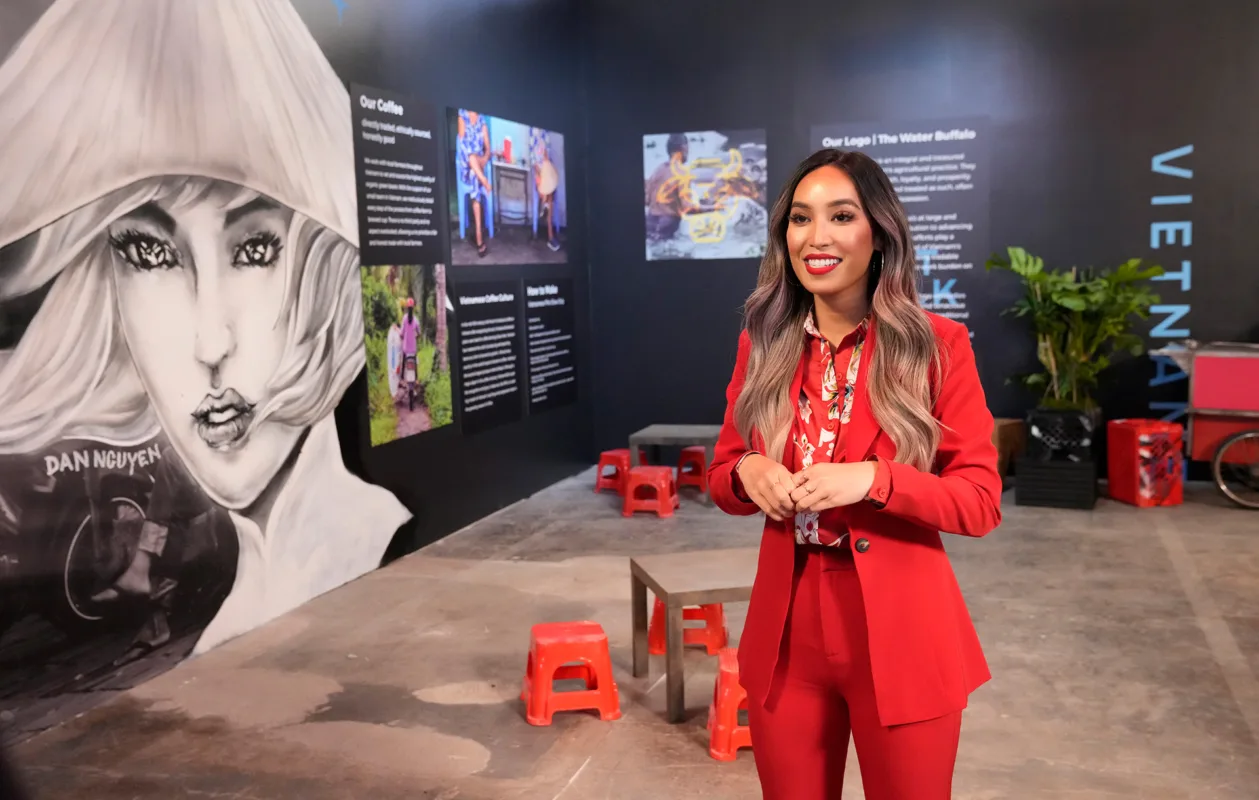
What happens to the business owners—and, more importantly—their businesses after they appear on reality TV? I chatted with four different companies to revisit their stardom experience and what the aftermath was like. Two of them participated in a single episode, while the other two were in season-long shows.
“I thought it was fake news from the beginning,” says Ho, who was recruited via Instagram DM for Food Stars and given one month to decide. By the time I had interviewed her as the founder and CEO of Fat Miilk for my article on Vietnamese coffee companies, she had already wrapped up filming (but obviously couldn’t mention it). She jumped at the chance to be on Food Stars, explaining, “I know that these opportunities only come every once in a while, and it’s a huge turning point for a lot of brands if you take that risk. And it definitely is a risk because my name, my performance, is tied to the brand, and it shows me as a leader, not just an entrepreneur.”
While she did not win Ramsay’s investment, the last episode featured three finalists with pop-ups again, this time with their own brands. Her pop-up demonstrated Fat Miilk’s roasted coffee brand, blending old and new Vietnamese coffee culture, “where we’re honoring and celebrating how we got here, but also being audacious enough to do it with our own fit and flare.”
After the finale aired, Fat Miilk received 600-700 orders in less than two days, effectively selling out its inventory. Anticipating this, Ho quickly put together a Kickstarter campaign to help with the company rebrand, a decision she made as a result of being on the show. She also signed a lease for a retail storefront on Argyle Street in Chicago, a neighborhood enclave rich with Vietnamese culture and people.
“A lot of people think we come back from the show, and we’re kicking our feet up, and money is raining down,” says Ho. “We came back and I’m still hustling, grinding in my business day in and day out.”
Like Ho, Third Wave Water did not believe the email from a Shark Tank producer was real, but they went ahead and applied anyway.
In 2017, the company’s cofounders Taylor Minor and Charles Nick appeared on an episode of Shark Tank, the hit reality show where entrepreneurs pitch their products to “the Sharks” in hopes of retaining one of them for an investment. At the time of filming, the company was fresh, and pivotal events happened quickly: it launched its flagship mineral blend in October 2016, completed a successful Kickstarter in January 2017, received the email invitation in February, and filmed in June.
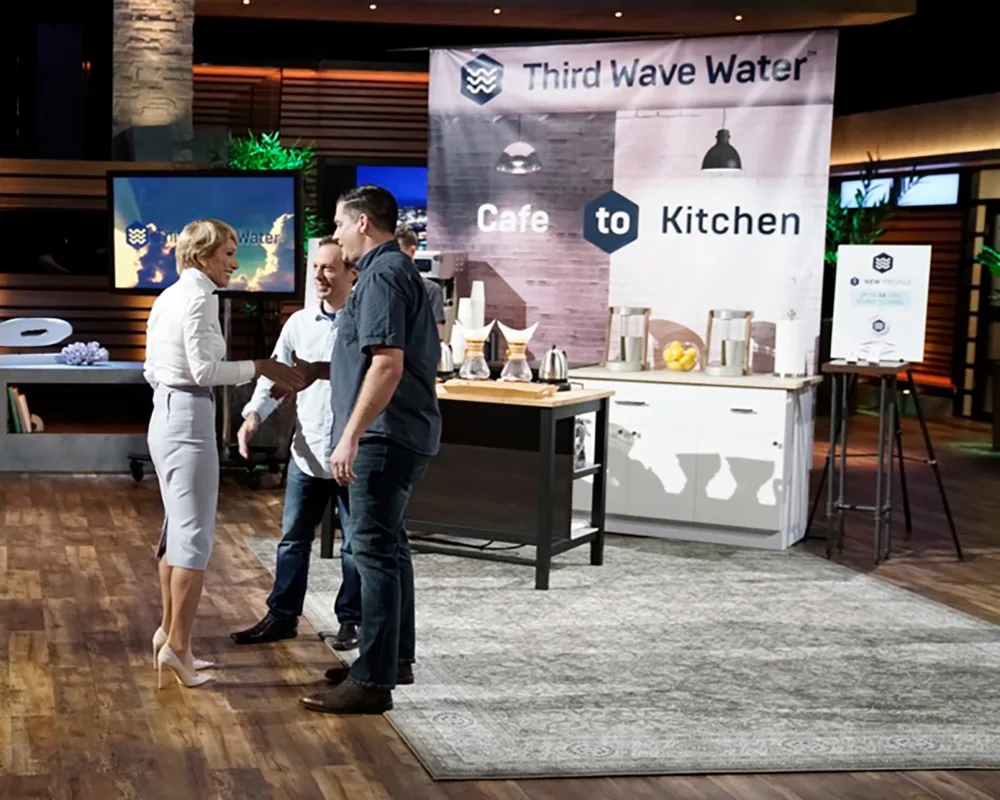
To prepare for the episode, they read the Shark’s biographies, pored over which industries they had investments in (Mark Cuban previously invested in coffee subscription service MistoBox), watched a bunch of episodes, and became intimately familiar with Third Wave Water’s business numbers. “They’re all smart people, and they can tell when somebody’s talking out of their ass,” says Minor.
Specialty coffee was still relatively niche in 2017. You can see this struggle in the episode: the Sharks thought that the mineral packet was supposed to be mixed in with the brewed coffee and not with the water. Despite tasting proof in front of them—two cups of coffee made with Third Wave Water & Los Angeles water (brewed by newly crowned US Brewer’s Cup champion Dylan Siemens)—all but one Shark weren’t convinced that the product had mainstream appeal.
In the episode, Barbara Corcoran agreed to invest $100,000 for 25% of the company and a $1 royalty on each unit sold. But after three months of negotiating the term sheet, she offered them an out. It turns out that the “Shark Tank Effect” was real for the company: in the week after the episode aired, it received 8,000-10,000 orders. For comparison, Minor says it took the company five years to beat that quarter’s sales.
“I would say that Shark Tank really helped us articulate and chew through the ‘how do we position this as a mainstream product,’” says Minor. Nick agrees and adds, “We weren’t planning not to take the deal because there’s many good ways that it could have worked out. The whole Shark Tank Effect is you’re reaching an audience that follows all of them.” With every re-air of the episode, they see a bump in sales. Even adding an “As seen on Shark Tank” label on marketing materials dramatically affects sales.
Minor and Nick were repeatedly told at every step that there was no guarantee: they may not make it to the next round, their segment may not be included, the episode might not air, and the Shark Tank Effect may not happen because of world news.
And that is exactly what happened to Gisele Littrell, owner of Tipsy Bean Café, whose Undercover Billionaire: Comeback City episode aired on January 6, 2021—just hours after the US Capitol attack. She may not have gotten the big release day that she wanted, but she still benefited from the process.
The episode opens with a teary-eyed Littrell introducing her story and the pandemic’s immediate impact on it, “At this point, I don’t know that I can last more than three weeks.” The show features one Erie, Pennsylvania business per episode, each with different business lesson takeaways. The owners have 27 days to save their businesses, and billionaire Glenn Stearns is there to lead them through it.
In actuality, it took three months to film, as it happened in mid-2020 when two-week quarantine periods were mandated anytime a crew member was infected. “It was movie magic,” she tells me. The second thing that was left out was that her other business, a contracting company, had been paying all of Tipsy Bean’s bills for two years. She did have only $500 in the Tipsy Bean bank account when Stearns arrived but says, “I wasn’t actually stressed about my business was going to fail. It wasn’t doing great, but it was COVID, and I was surviving.”
In a very relatable scene for small business owners, Stearns asks her, “You’re in here 6 am to 8 pm. If you’re cooking the whole time, who’s doing the quality control and everything?” She replies, “You’re looking at quality control, HR, CEO.” Stearns had plenty of advice for Tipsy Bean to turn a better profit, such as removing the cocktail part of the business so she could open earlier (Pennsylvania’s liquor laws prohibited her from opening before 9 am), pivoting to being a bakery-cafe, and creating a patio space in its enormous backyard. “Three weeks” later, the cafe had a grand reopening with a goal of selling 200 cups of coffee. It fell short at 140 cups, but that day’s sales were 975% over, and the growth has continued.
“I had $500 in my account when he met me, and I was making $5,000 a month, and now we’re at about $40,000 a month,” says Littrell. Unlike her fellow business owners in the rest of the season, she thoroughly enjoyed her time on the show and was ready to pack her bags and move to Hollywood. What she didn’t expect was the onslaught of attention. For the first six months after the episode aired, she received an enormous amount of messages and dealt with a few online stalkers. One case was in her hometown and became serious. She says, “I think they should tell people who’ve never been on television what to expect and how to guard yourself.”
Business aside, being on the shows was transformative for owners, as well.
Ho learned to take up space and trust her voice. Littrell followed Stearns’ advice to “listen to her gut” and has since developed a close friendship into a marriage, as well as purchased a 63-acre farm.
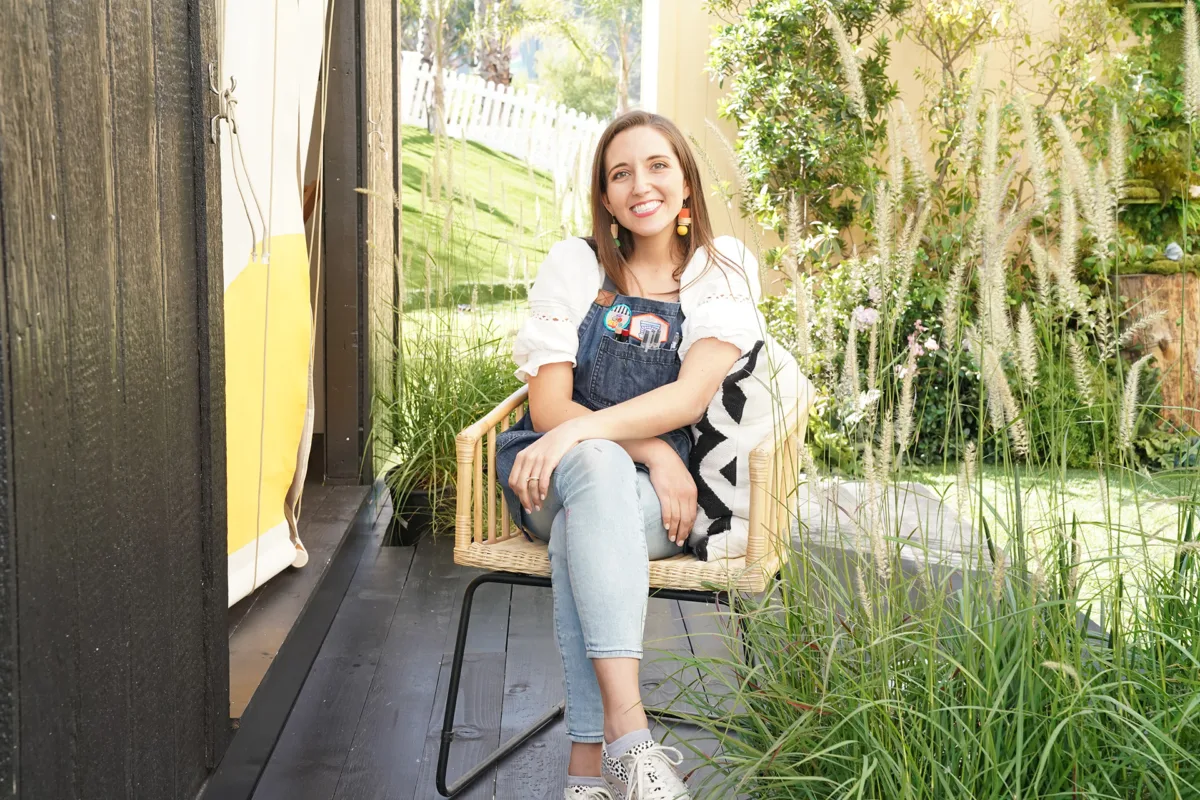
For landscape architect-turned-miniaturist Chelsea Andersson, another previous interviewee of mine, she overcame her imposter syndrome while being on the crafting competition show Making It, co-hosted by Amy Poehler and Nick Offerman. It may have competition in the name and a grand prize of $100,000, but the show itself was incredibly wholesome, with competitors supporting each other and judges providing gentle criticism. “I’m feeling so much more confident and proud,” says Andersson in the last episode (spoiler alert: she makes it to the finale). She elaborates to me what her mind space was like, “I may not win every challenge, but I’ve been proving to myself over and over again that I’m way more capable than I’d ever given myself credit for.”
She did brace herself for online criticism, but “that basically doesn’t happen with Making It, which is kind of unreal and nice. Because you’re putting yourself out there, and even the most mundane video or TikTok I can put out, someone will have something negative to say.” The release of Making It coincided with her move across the country, which also seemed like a good time to leave landscape architecture. She and her husband stayed with her parents while they got their footing, and this provided a safety net in case her decision to focus on miniatures didn’t pan out.
Andersson is now full-time in her “silly and weird” miniatures business, doing commercial work for brands like Warby Parker and Dolce Vita. “I went in with the mindset that I wasn’t going to win, and I think that surprises a lot of people because there was a hundred thousand dollars prize on the line,” she shares. “But more than anything, I was there because I wanted to be part of the experience, and I wanted to push myself and see what I was capable of.”
If business owners present with honesty and stay true to themselves on the reality shows they go on, taking advantage of the TV boost could reward them in spades. None of my interviewees regret their decisions, and it’s safe to say that they’ve reaped those rewards.
Jenn Chen (@thejennchen) is an Editor At Large at Sprudge Media Network. Read more Jenn Chen on Sprudge.











